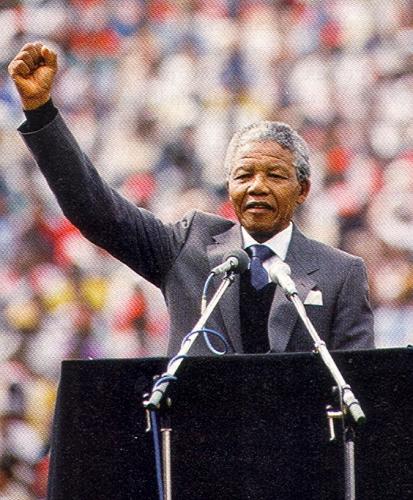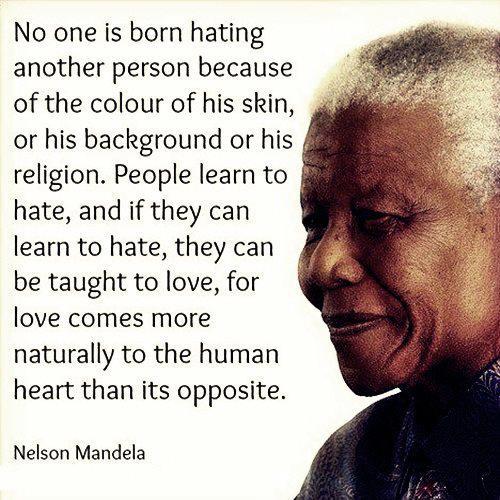Well New Zealand. That was some 1981 Springbok tour rumble! In 1981 my activist parents subjected my young siblings and I to Merata Mita’s film “Patu” which had just released. Her account tells how activists mobilised New Zealanders to stand against apartheid during the 1981 Springbok rugby tour. My brother and sister and I were only primary school kids then. This education style was typical of my young urban Māori ‘activist’ parents.
The movie portrayal left me feeling raw.
Merata and her family were our friends so our private viewing with them in Dunedin anchored us to the film from the outset. But I did not need this extra degree of connection to feel the truth of the story. All it took was an unspoilt heart to see that there were some very wrong bits in our world. I remember thinking that the horror of the film was that it was real. Real police and real people were clashing violently and some actual people could not understand why anyone was protesting in the first place. Really?
The film left me with big questions for a little brain and a stabbing in my sense of justice that would imprint for life. I thank mum and dad for that and every other cruel but teachable moment we had. Growing up with parents who proactively stood against injustice meant they often got a thrashing of sorts in front of us and that always stung. I felt just as disturbed seeing many people I did not know get beaten for standing on the righteous side of that 1981 uprising.
This is a time to mourn the death of Nelson Mandela, to celebrate his legacy and definitely to reflect on what he stood for. Dismantling apartheid and fighting the ongoing impacts of colonial rule and imperialism. This also requires naming oppression for what it is however uncomfortable that may be. The 1981 protests around Aotearoa seemed to rip the scab off our own bigotry. This revealed the gaping raw ugliness just sitting under the surface of our nation. I am proud of the many people of all backgrounds who came together and marched against racism and oppression for South Africa and for the world. Certainly for Māori it was a continuation in our fight against colonial rule and for our own sovereignty. It seems that at this historical time, some of our country had an intersectional consciousness. Some understood how oppression anywhere breathes the same oxygen of oppression everywhere. I am grateful to the leaders, agitators, organisers and protestors who put themselves on the line in an attempt to starve all such domination of its oxygen. I wish more of YOU could attend Nelson Mandela’s funeral to give some authenticity to our country’s representation for such a freedom fighter.
Nothing can take away from that 1981 movement. But we still have so much work to do.
Almost two years ago to the day I wrote a blog called “Why the fear of Māori representation”. Part of this post was a response to Māori wards and seats in local authorities being labelled as apartheid:
“A letter to the editor in The Star (Dunedin) from Peter Aitken refers to Māori representation as ‘racist’. He further aligns the concept of Māori wards to the oppressive regime of South African apartheid. That apartheid system treated black people as subservient on the principle that they were lesser human beings. In fact through the ongoing denial of human rights, inhumane denigration, disgusting humiliation and outright murder, black people were treated as barely human at all. Affirming Māori rights in relation to natural resources guaranteed by the Treaty of Waitangi will not diminish any human rights for non-Māori. Māori representation will not subjugate non-Māori as lesser human beings. It does not deny non-Māori their dignity and existence, nor exclude their active participation in decision-making.”
This was in December 2011. Exactly 30 years after that Springbok tour we are still in dire need of the education, the discussions and the outright resistance to racism, ignorance and fear.
I believe the world is turning to positive change and this is why the system of neoliberal domination is battening down its hatches against a tide of defiance. Around the world we are seeing indigenous peoples and caring communities resist the redundant fossil fuel extraction that has persecuted our environment and our guardianship. Around the world we are starting to reject the consumer culture which bleeds our planet of non-renewable sources. Around the world we oppose the abuses of power which have increased the canyon between the prosperous and those struggling. Around the world we are coming to better terms with the very atrocities that Nelson Mandela and many others sacrificed their lives to change.
For many New Zealanders the 1981 Spring Bok Tour will be our foremost connection to Nelson Mandela and apartheid in South Africa. Who can forget what our protests meant for that country at the time? For Nelson Mandela “it was as if the sun had come out” when he heard of our support actions while he was in jail. Mandela and the collective of men and women who braved oppressive rule to repel white domination understood the web of human rights abuses.
For us in Aotearoa that web requires that we continue to dismantle our own systems of subjugation while we stand up for freedom everywhere. We call for a sharing of power that enhances the wellbeing of our nation’s children as an absolute priority. We get real about our own history of imperialism and the neoliberal wound that we are still sticking plasters over. We ask for accountability for any decisions that continue to leave any family out in the cold. We continue to excite our common values for wanting a fairer, more equal and more just nation because we know as a country we can do so much better.
I heard a rumour that Nelson Mandela was just human. I heard that Nelson Mandela had made mistakes. I heard that Nelson Mandela had regrets. And I know – that Nelson Mandela was also visionary and feisty and that many of us in Aotearoa share his dreams.
This is a good time to reflect on Mandela’s life, his death, his legacy and his aspirations. Haere atu rā e te koroua. Haere atu rā ki ngā tūpuna kua whetūrangitia, moe ai.
Stay stroppy Aotearoa.







Bringing back memories alright. 1981 I was a young new father working two jobs and my physical activism was on the back burner. However my dad’s actions in Wellington more than made up for my slackness…but my memory from your writing on Patu is the mentor Tama Poata was to me when I started working for someone other than my father in late 70’s…that and the home brew sessions out Makara and the all night political discussions. RIP to dad, Tama, Mandala and the legacy of waking up NZ.
Comments are closed.